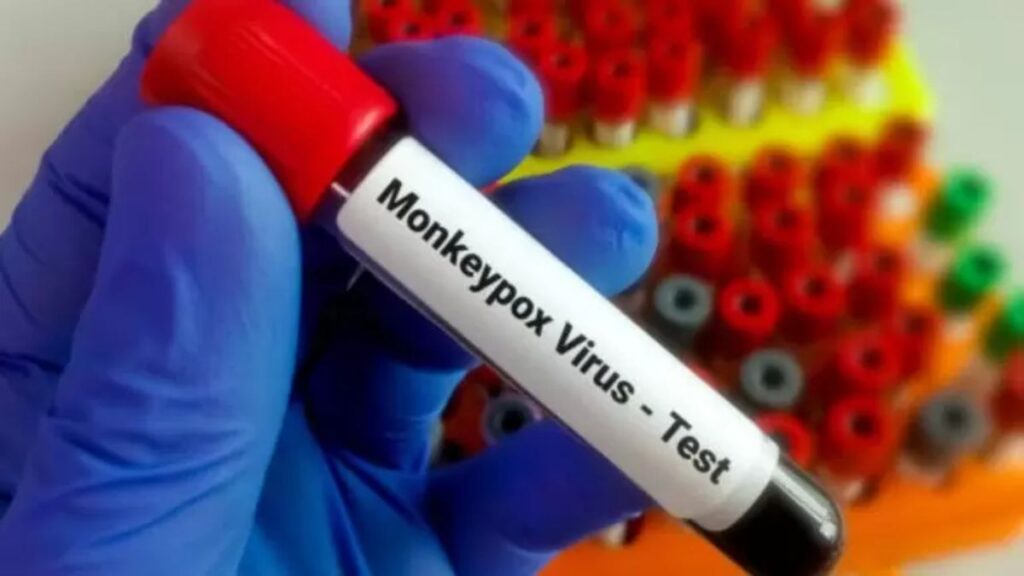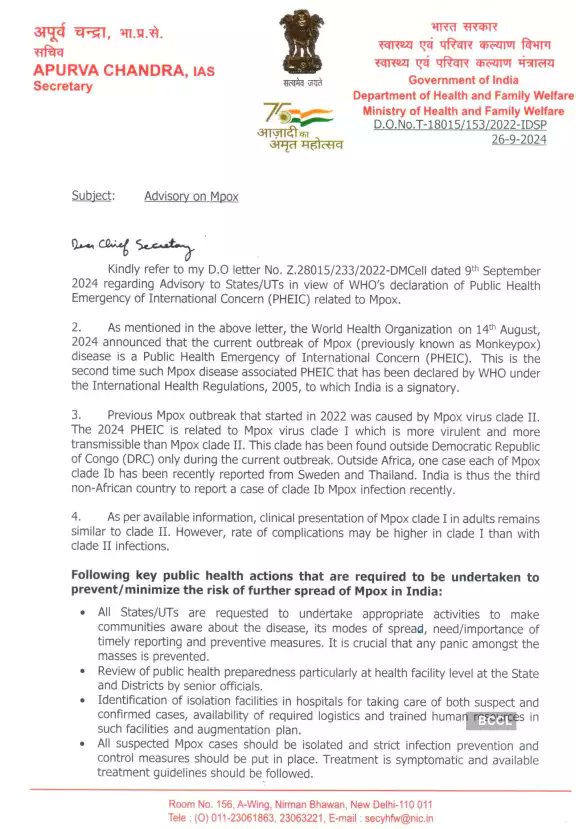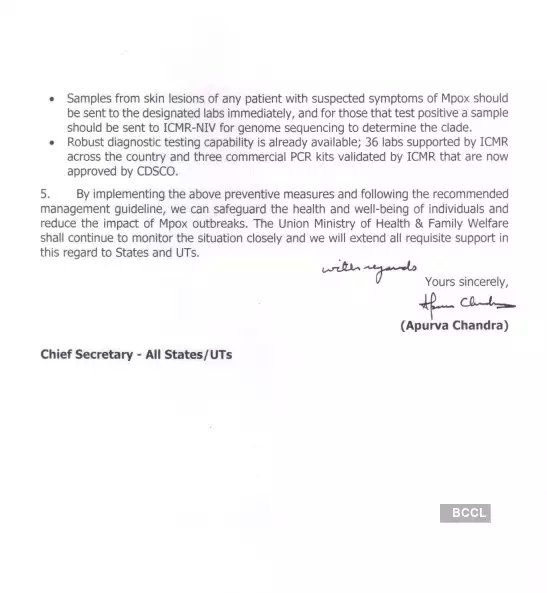India on Alert: New Mpox Clade 1b Case Detected, Precautionary Measures Tightened Across States

Healthcare workers in India ramp up efforts to contain the spread of Mpox Clade 1b
India has stepped up its vigilance against Mpox (previously known as Monkeypox) after a recent case involving the more virulent Clade 1b of the virus was detected in the country. This development, highlighted by a directive from the Union Ministry of Health and Family Welfare, puts India on the list of countries outside Africa that have reported cases of Clade 1b—marking it as the third such nation after Sweden and Thailand. The Union Health Ministry is taking swift actions to prevent the further spread of the disease, issuing an advisory to all States and Union Territories (UTs) to ramp up public health measures.
WHO Declaration and Mpox Clade 1b
The World Health Organization (WHO) had declared Mpox as a Public Health Emergency of International Concern (PHEIC) back in August 2024, which triggered widespread precautionary measures globally. The most recent outbreak is linked to Clade 1b, a more virulent and easily transmissible strain compared to Clade II, which was responsible for earlier outbreaks in 2022. In Africa, Clade 1b has primarily been observed in the Democratic Republic of Congo (DRC), while countries like India, Thailand, and Sweden have begun seeing cases outside the continent.
National Public Health Response
The advisory, issued by Apurva Chandra, Secretary, Department of Health & Family Welfare, calls for heightened surveillance and preventive action across all Indian states and UTs. Among the key directives are:
- Public Awareness & Early Detection: States are instructed to raise awareness among communities about the modes of transmission and importance of early detection. Rapid reporting of any suspected cases is critical in containing the virus.
- Preparedness & Isolation: The Ministry is focusing on equipping healthcare facilities to manage both suspected and confirmed Mpox cases. Isolation wards have been mandated for symptomatic patients, and immediate isolation of suspected individuals is required to prevent community transmission.
- Diagnostic Testing: India has robust diagnostic capabilities, with 36 labs validated by ICMR and three commercial PCR kits approved by the CDSCO for rapid testing. Samples from skin lesions of suspected patients must be sent to designated labs for testing, and genome sequencing will be performed for those testing positive to determine the virus clade.
Health Guidelines and Hospital Management
Strict guidelines have been issued regarding hospital management and treatment of Mpox. Symptomatic individuals are to be treated according to protocols that have been established for managing the disease. Hospital staff are being trained on these protocols, and there is an emphasis on the availability of required medical supplies and diagnostic kits.
- Health Worker Safety: Frontline health workers are urged to follow infection control measures to protect themselves from possible exposure to Mpox.
- Preventive Measures: All states are to review their outbreak preparedness plans and ensure healthcare systems are ready to respond to new cases. This includes training healthcare workers and ensuring adequate isolation facilities.


Mpox Clade I vs. Clade II
The clinical symptoms of Clade 1b, while similar to Clade II, have shown higher rates of complications. Clade 1b is characterized by more aggressive symptoms, including severe skin lesions and a higher risk of hospitalization. While Clade II had been primarily reported during previous outbreaks, the current situation with Clade 1b has added urgency to the national response.
Conclusion
The Union Ministry of Health and Family Welfare remains vigilant and is extending all necessary support to states and UTs to curb the spread of Mpox. As the country gears up to handle this emerging health threat, timely intervention, public awareness, and robust healthcare infrastructure will be crucial in mitigating the impact of the virus.
The new Mpox outbreak has once again highlighted the importance of global cooperation in disease management, and India’s swift response demonstrates the nation’s readiness to tackle potential health crises head-on.






